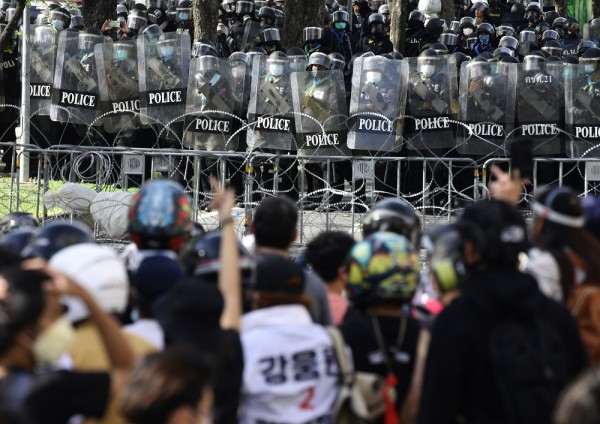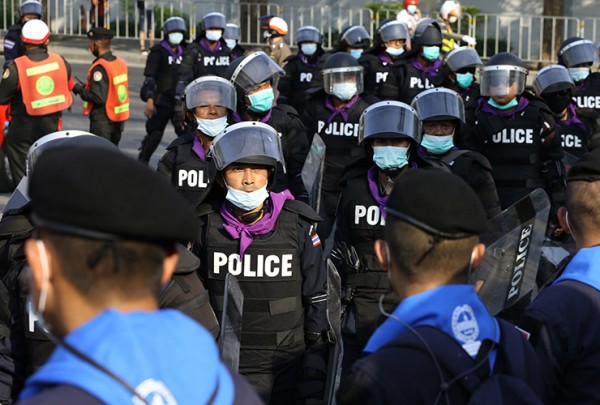The Thai authorities forced opposition TV broadcaster People TV off the air again on Saturday, a day after opposition ‘Red Shirt’ protestors overran an army blockade and briefly forced the government to reverse its earlier decision to censor the channel.
An army spokesperson said security forces had taken action at the broadcaster late on Friday, Reuters reported.
Following the declaration of a state of emergency in Bangkok on Wednesday, the Thai government took the satellite channel People TV off the air and blocked a number of websites for supporting the anti-government movement.
Among the websites blocked is Prachatai.com, which, according to the South East Asia Press Association (SEAPA), is an independent online news website known for accommodating a diversity of information and commentary on various topics.
Thai journalist groups have protested the censorship moves, noting that the State of Emergency Law grants the government sweeping powers to censor media outlets and restrict the free flow of information.
Furthermore, the clampdown on news outlets in connection with their exercising of their right to freely express opinions and distribute information is “unconstitutional and in violation of Thais’ rights to press freedom and access to information,” the Thai Journalists Association (TJA) and the Thailand Cable TV Association (TCTVA) stated.
“The free flow of news, information and ideas – even if it makes those in power uncomfortable – is a fundamental element of the democratic debate, as it allows citizens to take informed decisions about their government,” said IPI Press Freedom Manager Anthony Mills. “The Thai government must restore media freedom in the country and allow its citizens to peacefully express their opinions.”
In a televised statement on 8 April, according to the Bangkok Post, Thailand’s Prime Minister, Abhisit Vejjajiva, said “the channel aired disinformation so people would turn on the government. This endangered national security.”
The latest wave of protests against the government of Prime Minister Abhisit Vejjajiva began on 12 March when ‘Red Shirt’ protesters took to the streets. Three days later, demonstrators splashed blood under the gates of Government House in a sign of protest against the current leadership. The ‘Red Shirts’ do not recognise Abhisit Vejjajiva’s leadership, charging that the prime minister came to power illegitimately following the 2006 coup against former Prime Minister Thaksin Shinawatra.


